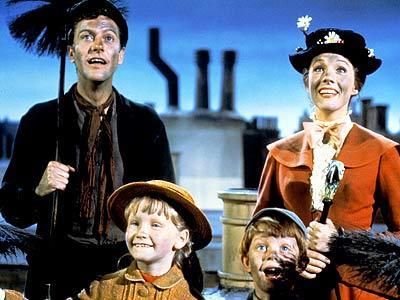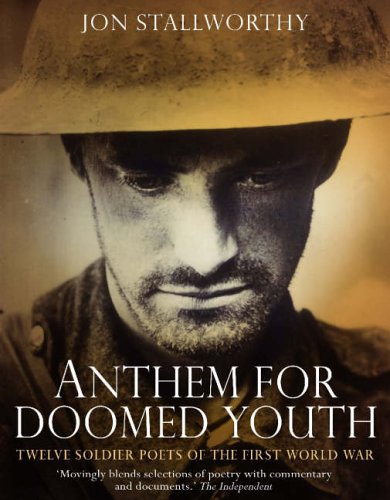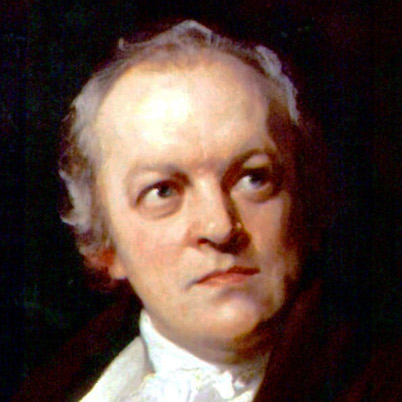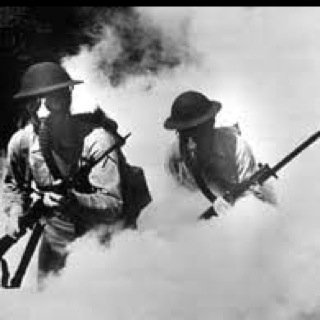About Wilfred Owen:
Wilfred Edward Salter Owen is one of the leading poets of the First World War. He was born in the year 1893 in Weston Lane, near Oswestry, England. Owen discovered his poetic vocation in the year 1904 and he began writing poetry sometime before he joined the army in 1915. Owen’s character went a drastic change after many traumatic experiences and near mortal encounters. His poetry which stemmed from these experiences, personal and real, was truly brutal and depressing. He is known for his verses on the horrors of trench and gas warfare. His most notable works are ‘Dulce et Decorum est’, ‘Insensibility’ and ‘Anthem for Damned Youth’. A war poet, Wilfred Owen was killed in action in the year 1918, one week before the war ended.
About Apologia Pro Poemate Meo:
‘Apologia Pro Poemate Meo’ means ‘In Defence of my Poetry’ in Latin. As said above, Owen mostly wrote about the horrors of the war. As expected most of his poems were depressing. Robert Graves is said to have written a letter to Owen telling him to write more optimistic poetry. It is in response to this letter, that this poem is said to have been written.
Setting of Apologia Pro Poemate Meo:
The setting of the poem is in war-prone area. The poet is a soldier in a side fighting the war and it is of those experiences he speaks of in this poem.
Poetic Devices in Apologia Pro Poemate Meo:
Stanzas:
The poem is written in 9 stanzas of four lines each.
Rhyme Scheme:
The last words of the first and third line, and of second and fourth line of each stanza rhyme with each other i.e., the rhyme scheme of the poem is ABAB for each stanza.
Imagery:
There is some imagery when the speaker speaks of the warzone. In stanza 6, the act of wrapping wounds, is very vivid.
Summary of Apologia Pro Poemate Meo:
In response to a letter which said that Owen should write more ‘optimistic’ poetry, Owen wrote this poem full of sarcasm and admonition.
Owen says that he finds God even in war, in the faces of the wretched. He finds it joyful to laugh in war as he yielded the power to kill with no remorse. He had no fear as he had no hopes. He was exulted when the people who cursed freely usually, became rapt and blissful when worshipping Him again. He made fellowships, neither fair nor beautiful, but bound with wires and blood and he found joy in them. He found beauty in his duty. He ends the poem by saying that unless you shared these experiences directly with the soldiers, you will not be aware of their true situation and be under the misconception that everything was depressing in war.
Analysis of Apologia Pro Poemate Meo:
The speaker of the poem is Wilfred Owen himself, though it is never specifically said so. But going by the situation in which this poem was written, we can safely assume that it was Owen himself who is the speaker.
In the first stanza, the speaker says that he saw God through the mud which cracked on the wretches when they smiled. He is telling right from the first stanza itself, that there is joy to be found in war too. This is in response to the letter which said his poetry was too depressing. By wretches and mud, he speaks of the soldiers who risk their lives fighting, covered in mud and yet, still smiling. The glory that is seen in their eyes is more than some lineage and their laughs are more gleeful than that of a child when he is shook. By this he compares the lives of people living away from the war, watching it from side-lines, and implies that they are not that different.
War makes life more absurd than death. And this makes them laugh; laugh because they had the power to kill and not be convicted. They did not feel sickness; for what greater sickness is there than death which is so common, so rampant in the war zone? And despite all of this, they laugh, drunk on power.
The speaker says he does not have fear. He dropped it off behind the barrage; the barrage which claimed the lives of his platoon. And now his fear was dead; same like the bodies he left behind. His spirit was clear now, and light, because he had no hopes. He left them too.
He rejoiced when they worshipped the Lord. In usual times, the same soldiers would curse and scowl. But during worship, they are all blissful; though it was only for an hour.
There is a pattern in all the analysed stanzas and the upcoming stanzas. The speaker is saying that there are times of joy, of exultation and merriment. But the speaker is Owen himself who wrote poems condemning war and its horrors. So isn’t it sort of like a contradiction?
In the next stanza, the speaker says he made relations and fellowships with his fellow soldiers. He says he loves them. He says that love isn’t just meeting of fair lips and beautiful eyes, like an old song. Love exists in war too.
This love sprouts from countless life death experiences. It binds them together, not with looks nor longing, but with wounds and blood. The scene described in this stanza is gory but it also emphasises the pattern which we will talk about last.
The speaker says he perceived beauty in war. Not, again, in looks but in the oaths that kept the soldiers going, the oaths which gave them courage, and in the silence of the night which followed the day of bitterly fought war. He found beauty when the shell-storms, bullets, drew blood of the enemies, one after the other.
The speaker speaks of the war-zone as hell, a dark and sorrowful one. Life can go out at any moment and one shell is all that stands between the soldier and heaven. We can see that the speaker says that all those who die in battlefield go to heaven. By this the speaker may imply that whether the soldier, friend or foe, goes to hell or heaven, as written in religion, he will be going to ‘heaven’ when compared to the ‘hell’ of the battlefield.
The speaker says that unless ‘you’ (here, you can mean both the reader and Robert Graves for whom this poem is written in response) experience these situations live and directly, you cannot imagine their happiness. He says that these men, who fight the war, are worthy of the reader’s tears. But ‘You are not worth their merriment’; meaning, they found joy in the battlefield itself and not from the people who stay away from it.
Now this poem may seem like a show of the ‘positive’ things in war. But isn’t it at the same time speaking of all the horrors and the gore and unhappiness surrounding it? By effect, isn’t this pure sarcasm on the part of the speaker?
Now this is left to the interpretation of the reader. The circumstances say that it is indeed a ‘positive’ show. But the nature of the poet tells that it is a sarcastic poem, which while showing the ‘joys’ and fellowships also highlights the hell that it stands for.
Central Idea of Apologia Pro Poemate Meo:
The central idea of the poem is to reprimand Robert Graves on his remarks that Owen should ‘cheer up’ and write more optimistic poetry and to show the ‘joy’ which can be found in war, contrary to the people (who stand by the side-lines)’s imaginations.
Tone of Apologia Pro Poemate Meo:
The tone of the poem is at once joyful and depressing; joyful in its sarcasm and depressing when one goes past the joy to the horrors described, hidden by that joy, in the poem.
Conclusion
Wilfred Owen writes a highly sarcastic poem which at its face is reprimanding and speaking of all the things that are to be found in war which are joyful and beautiful, but behind this façade tells exactly how dreadful and horrific it is.
Contributor: Uttej Reddy
Some online learning platforms provide certifications, while others are designed to simply grow your skills in your personal and professional life. Including Masterclass and Coursera, here are our recommendations for the best online learning platforms you can sign up for today.
The 7 Best Online Learning Platforms of 2022
- Best Overall: Coursera
- Best for Niche Topics: Udemy
- Best for Creative Fields: Skillshare
- Best for Celebrity Lessons: MasterClass
- Best for STEM: EdX
- Best for Career Building: Udacity
- Best for Data Learning: Pluralsight













